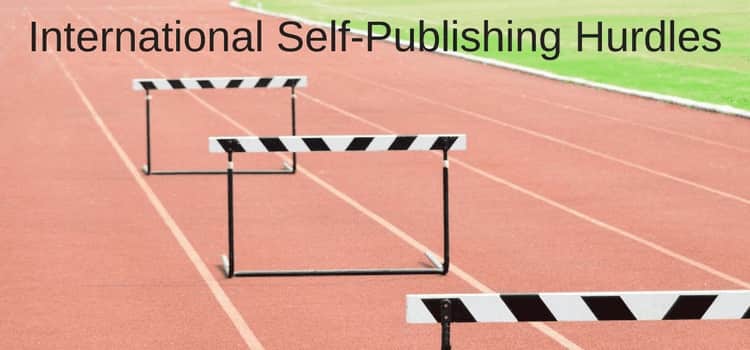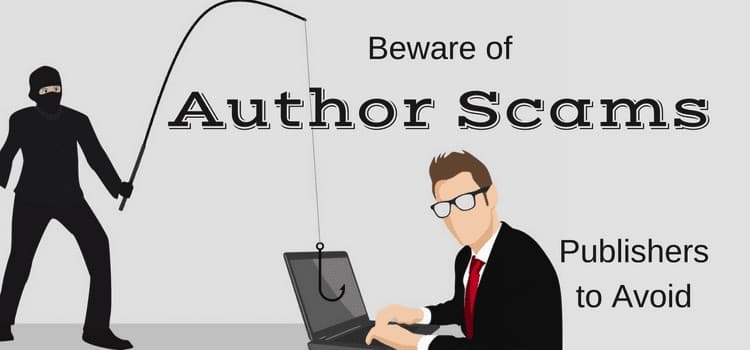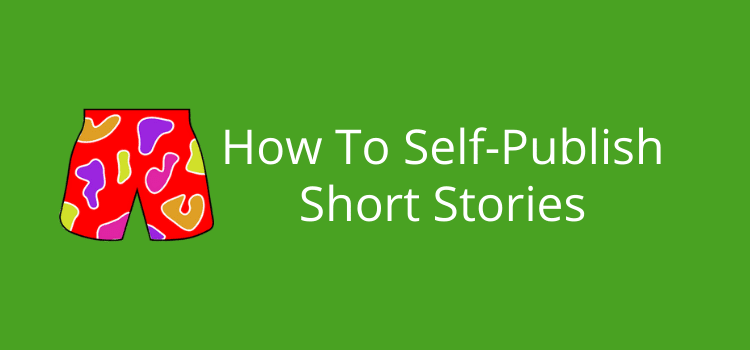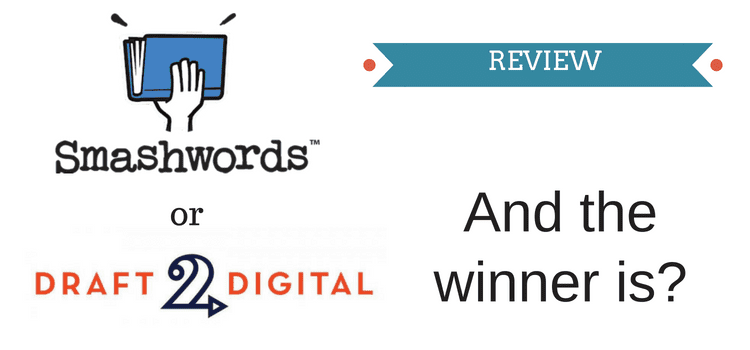
If you are not a US author, self-publishing has some impediments to jump before you can receive your book royalties in full. You certainly need to check the Amazon tax information for non-US authors.
International self-publishing requires overcoming several financial, legal, and logistical obstacles before you can expect to make money from ebook and book sales.
For authors who are new to or considering self-publishing for the first time, there are important issues you need to consider. There are some traps to avoid and extra international obstacles to overcome.
To avoid frustration and wasting your time and money, here are some of the major points that you should consider and understand before self-publishing from outside the US.
Can You Self-Publish Everywhere?
Not all self-publishing platforms allow international authors to use their services. For example, Nook Press, the self-publishing platform of US-based Barnes & Noble, restricts access to only a few countries. This is from its website.
NOOK Press is currently for authors and publishers in the following countries: US, UK, France, Italy, Germany, Spain, The Netherlands, and Belgium.
The vast majority of self-publishing companies are US-based platforms. Some offer very limited, or indeed, no access at all to international authors. Before considering a platform, check this basic point of availability in the fine print before you do anything else.
Withholding Tax For Authors
Withholding tax is undoubtedly the biggest trap for non-US self-publishers.
To avoid having between 30% and 50% of your book royalty-based income deducted due to international tax laws and agreements with the US, you will need to obtain a US Taxpayer Identification Number (TIN).
You also need to live in a country that has a tax treaty with the US. In some cases, you can use your local business identifier number if you are registered for one in your country.
There is a lot of information regarding this topic in the account sections of popular self-publishing sites. But they all make it sound like a difficult process.
From bitter experience, I can tell you that the first time I tried, it became a paper nightmare. I sent off my application to the IRS in the US, only to have it come back rejected.
There are so many regulations regarding what constitutes a valid ID. There are also translation and language difficulties in different countries. It can be a very hit-or-miss affair, and you can waste a lot of time.
Solutions
Luckily, however, some years ago, when I tried again, I read a post by Merita King, a UK author.
She found an easier way to get a TIN.
She simply called the IRS and asked for it. I did the same and had my TIN in five minutes.
Unfortunately, Amazon, Smashwords, and other sites do not give you such simple advice regarding tax information for non-US authors and publishers.
Perhaps they are not permitted to do so by US law. But it proves that asking for advice from others is often far more rewarding.
Google Search and social media are valuable resources in getting the information you need for this and many other issues that you will have to confront.
Update On International Tax Identification Numbers
If you live in a country with a tax treaty with the United States, you may be able to use your local tax identification number (TIN).
It is much easier than applying for an EIN or TIN with the IRS.
You can find the list of qualifying countries in this list from the IRS.
If you qualify, you can use your local TIN to complete your tax information for Amazon KDP.
You can find this note in this KDP support article.
If you do not have a U.S. TIN, you may enter the income tax identification number issued to you by the tax authority in your country of residence.
You can find out more about completing your tax interview for KDP by reading this support article regarding Amazon tax information for non-US publishers.
How Will You Get Paid For Your Book Sales?
This is where the wheels can really fall off your dreams of making money from self-publishing.
There are so many restrictions, limits, and methods of payment.
The payment terms of book royalties differ enormously from one service provider to another.
Just because you sell some books doesn’t necessarily mean you will get paid.
Smashwords and Draft2Digital are by far the fairest in this regard. Smashwords pays your royalties quarterly, directly into your PayPal account, for all sales accrued during that period.
Draft2Digital pays monthly on balances over $10.00. Both are simple and easy to understand. As they are aggregators, it is for all sales made through all the sales channels they service.
Kindle Direct Publishing divides sales royalties into each one of twelve individual stores: Amazon.com, Amazon.co.uk, Amazon.de, Amazon.fr, Amazon.es, Amazon.it, Amazon.co.jp, Amazon.in, Amazon.ca, Amazon.com.br, Amazon.com.mx, and Amazon.com.au.
For each of these stores, you need to accrue US$100 in sales income (or the equivalent in the currency of the individual store, e.g., Euro100) to be eligible for your royalty payment by check from each individual store.
For some countries, however, it is possible to have your payments made electronically into your bank account.
This negates the $100 limit. So, even small amounts of a few dollars will go into your account each month.
If you live in a country that is not eligible for electronic payment from KDP, however, you could be waiting years and years to accumulate enough sales from, say, Amazon.fr to reach Euro100. This is, in my mind, very unfair.
The only way around this problem is to remove your ebooks from all Kindle stores other than the US and then hope that your ebook buyers can access the US Kindle store.
Publishing Print On Demand Paperbacks
If you are thinking about publishing in paperback, you may believe that it is an inexpensive way to produce your book and have hard copies available for you to sell either locally or online.
On average, it will cost you between US$2.50 and US$4.00 per copy from a provider such as KDP, Lulu, or Blurb.
However, when you place your order, you will immediately see that the shipping cost for your books is equal to or above your cost per copy.
This does not take into account possible customs duties levied by your country that you may have to pay upon delivery.
This can mean that your books might cost you upwards of US$12-14 per copy by the time they get to you. On top of this, delivery times can be up to two months if you use the most economical postage rate.
Conclusion
There are many self-publishing platforms and service providers. I have only covered a few key points and the three major publishing companies in this article.
But before you jump into self-publishing, do your research first. Look for the answers to these key questions before deciding on which publishing option is best for you.
Questions for non-US self-publishing authors.
Am I eligible to publish?
Will I have withholding tax deducted from my book royalties?
Do I understand the Amazon tax information for non-US authors and publishers?
Will I have to pay local income tax and bank fees?
Do I need a Tax Identification Number or EIN?
How, when, and how often will I receive my royalty payments?
Should I publish ebooks only?
Should I publish in paperback POD?
As with any new business venture, do your homework and research first.
Ask questions of people online and make sure you read the Terms and Conditions of each service provider carefully before you click the publish button.
Related Reading: Self-Publishing Without Amazon KDP – Can You Do It?
Share This Article



Is there a way to avoid the 30% withholding tax if I am a non-US individual from a country with no tax treaty with the US?
If you don’t live in a country on the IRS list of treaty countries, you might want to seek the advice of a local accountant.
I worked in the Philippines two decades and have a novel ready for ebook publication. The novel will be of interest to Filipinos and others in the English-reading world. Amazon’s geo-restrictions concern me. Can only American residents download Amazon Kindle books? If the answer is yes, is there a doable way around the restriction? If Kindle isn’t an option that allows international purchases, are there other ebook publishers who would be a better fit for me? Grateful for help you can offer.
There is no US restriction on Kindle ebook sales, Richard. Anyone in the world with an Amazon account can buy them. But you could investigate Draft2Digital if you would like to have more selling options.
I can confirm that as an individual Australian tax payer I can enter my Australian TIN (In Australia this is called the TFN- Tax File Number) in the KDP “Tax Interview” This hurdle was what stopped me trying to self publish through AMAZON. It has now thankfully been removed!
Good news, Andrew. Yes, I believe Amazon now accepts national tax identification numbers. I’ll have to update this article once I can confirm the changes.
If you publish through other print on demand services like Lulu, Blurb, BookBaby, etc and choose to pay the middle man fees to sell to Amazon, does Amazon still retain 30% in tax?
No Carla. Your POD service will retain your 30% withholding tax, not Amazon. When you register for a tax exemption, you need to apply it to all your publishers.
I’m an American yet I live abroad (for a long time now) I like writing as a hobby (I’m a housewife) I want to publish but I don’t want to deal with paperwork or taxes.
If they withhold 30% do I still have to do my taxes in either country?
It would be best to consult with an accountant about that, Gigi.
Received Payment with Payoneer.,
even you have sales $0.1, they will be send your payment dirct to payoneer
My mind totally blanks out when it comes to this tax stuff.
Can you please clarify for me?
I’m a Swedish citizen, and I want to publish on amazon.
Your table says they withhold 0%. I know we have a tax treaty with USA.
Does that mean I can just input my Swedish social security number, and then they won’t withhold anything?
Is that correct? I don’t understand the 30% withholding thing. Om your table it doesn’t say anybody has a 30% withholding.
The tax information you need to supply depends on your country. The best place to start is to read KDP’s tax information page.
https://kdp.amazon.com/en_US/help/topic/G201723290
Thanks for tip and your valuable time to reply, Derek.
I have been toggling with the idea for a while and even started at least one title for KDP print, but have been reluctant to be unfaithful to CreateSpace as I joined them in 2009/10. However, the bottom line says “Sales” and I must listen to your truth and voice. It would be so nice to see more sales! M:)
It’s not easy, I know Marie. But I would suggest that you investigate changing from Createspace to KDP paperback publishing. It might be coincidence, but my paperback sales have increased noteably since I changed over.
Derek, Thanks for this post. I applied and received a ITIN (Cost $100AU) 2010; Withholding is also still applied at 5% for Australia, better, but what happens to all those little bits of royalties? Who gets this money? I placed my order for 6 different titles I published on 13th December, 2017 with CreateSpace.
The order was paid and finally fulfilled on 27th December and today, 20th February 2018 I am still waiting for the delivery!
Too bad if I had a book signing or launch to prepare! It is nothing short of impractical and I am searching for ways to publish away from USA, whose ethics seem strange to me. Smashwords do pay via PayPal, which CreateSpace have not set up and Kindle pay directly into my bank account (not very much money drops in) I have to wait for £100 $100 or EU 100 with CreateSpace before I am paid royalties. Lulu also pay via Paypal – any amount in the account, so that is nice. (Thanks Lulu)
KDP is now doing paper back editions, but I have resisted as I wanted to be faithful to CreateSpace. Am I silly? Marie the Author
Also, when I receive my cheque (check) I have to pay the bank $10 immediately for exchange, so I lose in so many ways that I wonder why I write and keep writing! I do publish with Kindle and Smashwords (who are more author friendly).
I am not sure about ITIN for Australia as I redid this process about a year ago. It is painful in so many ways that I may end up retiring in despair. Thanks for raising these issues and allowing authors to get relief in a conversation here.
Thanks for your input on this topic, Helen. Yes, I noticed that I could use my Swiss business number when I had to renew my IRS declaration with Smashwords and Amazon a few months ago. This was new to me. However, as I am self-employed, this may not be a facility open to other authors. It would pay to check in each instance. As a note, Smashwords was very helpful when my old US EIN didn’t work with its IRS system. Smashwords Help guided me to the new facility to use my local business number. A much better and friendlier service than Amazon, I must say. If an when I get further information, I will update this article.
I’d just like to update some of the information in this article, seeing as a lot of your readers won’t have realised that the IRS updates part of their tax arrangements every year. This year they’ve brought in a new arrangement for dealing with US tax with-holding: when completing the Kindle (and presumably other e-publication platforms) Tax Interview, there is now space to type in your UK tax reference, as well as your ITIN if you have one. ITINs are being phased out, and some have actually already expired. This should make life a lot easier, as the writer above’s experience was similar to my own. Hope this helps.